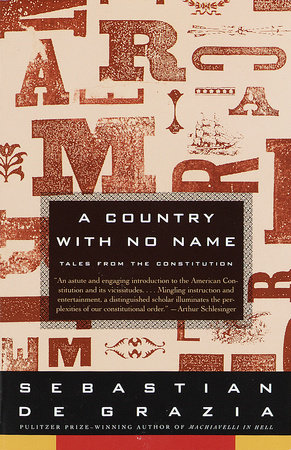This groundbreaking work intends nothing short of a revolution in how we think about the "American" constitution and government. In A Country with No Name, Claire St. John, a stylish and mysterious Englishwoman who is completing her university studies, spends two weeks tutoring a young American, Oliver Huggins, in American history.
St. John asserts that the country has gone through its history without a name. For twelve afternoons she leads Huggins on, using colloquial language that is satirical, bantering, and metaphorical. Structured with quizzes and unconventional vignettes about familiar personages, using speeches, songs, dramatizations, interior monologues, and time warps, the text weaves in and out of the no-named-ness of our country.
Startling observations emerge out of their dialogue. The original States and the Framers had irreconcilable difficulties in denoting the parties to the constitution and in naming the country to which they wished to fix allegiance. Because of these difficulties, the country we now call "America" was late in getting a name; indeed, it did not get a name until decades after the War of Secessions, a century later than the drafting of the constitution that was supposed to have founded it. St. John's unique perspective raises questions about the legality of the constitution, the supreme law of the land, the prerogatives of the supreme court, oaths of office, and leadership claims of presidents, alerting us in the process to future possibilities, both good and bad. She also reveals our nation's most revered heroes for the complex and conflicted characters they really were. Abraham Lincoln is cast as more of a self-serving lawyer than the Great Emancipator. Chief Justice John Marshall is charged with endowing the Supreme Court with powers the Founding Fathers never intended. Henry David Thoreau is portrayed as more of an anarchist than a meditative nature lover.
And throughout these two weeks of tutoring, the relationship between St. John and Huggins, having acquired its own momentum, cannot possibly remain the same. A Country with No Name is an inventive composite of history and literature which challenges even the most long-held traditions.
"Fascinating...informative...de Grazia's demythologization of American constitutional history ought to be required reading."
--Washington Times
"Clever and insightful...de Grazia's argument is persuasive."
--Boston Herald





